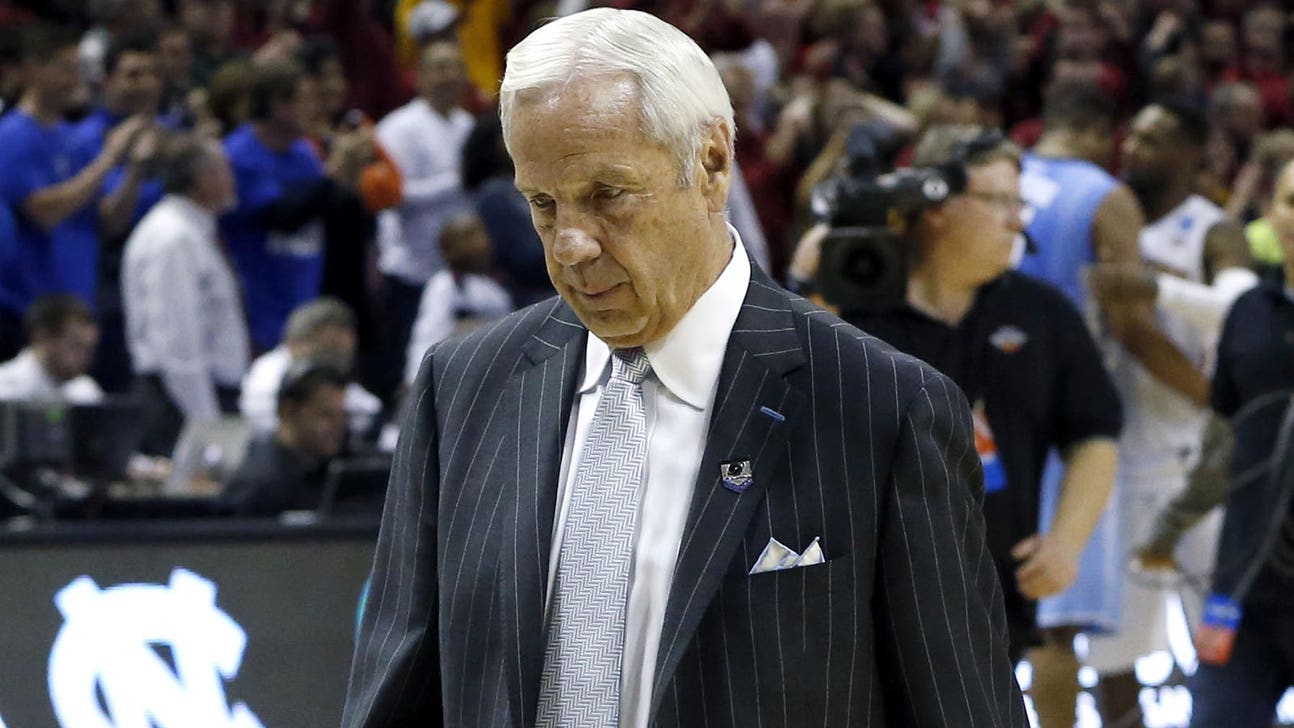
UNC's Williams: 'Very sad time' after academic fraud report

CHAPEL HILL, N.C. -- North Carolina basketball coach Roy Williams said Friday night it's a "very sad time" at the school after an investigation found widespread academic fraud and adds that his program "thought we were doing the right thing."
After his team's exhibition victory, Williams spoke for the first time in response to a report released Wednesday that outlined how fraud ran unchecked in the formerly named African and Afro-American Studies (AFAM) department for nearly two decades. It involved more than 3,100 students -- about half were athletes -- taking sham classes and earning artificially high grades, while poor oversight allowed the problem to worsen.
Williams said he was "dumbfounded" by the details in the report and said UNC "made some mistakes for a long time" that damaged the school's reputation and led the NCAA to reopen its probe into academic misconduct here.
"We've made a lot of moves," he said. "A lot of procedures have been put in place, a lot of people have lost their jobs. And I'll always be sad about the image we have right now around the country. We've had one of the greatest images that you can possibly have. We're going to work as hard as we can possibly work to have that image be back to where it was."
The report by former U.S. Justice Department official Kenneth Wainstein called the system a "shadow curriculum" running from 1993 to 2011 within the department. Much of that centered on an office secretary assigning a research paper and then giving A's and B's after a quick scan regardless of the quality with no faculty oversight and no class attendance.
That administrator, Deborah Crowder, wasn't a faculty member and offered the classes -- sometimes listing them as lectures but treating them like an independent study -- until her retirement in 2009 in an effort to help struggling students. The former department chairman, Julius Nyang'oro, offered more of the courses until questions were raised two years later.
The report stated Williams and other coaches said they were aware there were independent study courses offering easy grades, but they didn't know the classes were bogus.
Wainstein said he found no reason not to believe them.
"We thought we were doing the right thing, felt very comfortable about it," Williams said of his program. "Our kids that were in the AFAM, I think our kids tried to do the right thing. The kids tried to do the work that they were assigned."
The report also outlined how counselors for athletes often steered students to the classes and that several -- including former men's basketball counselor Wayne Walden -- had at least some knowledge of irregularities.
Williams defended Walden as "one of the most ethical guys I've ever known in my life" and said there were parts of Wainstein's report he disagreed with. But he also said Walden and everyone involved in the program can look back and say they wish they'd have done some things differently.
Williams also addressed the high number of AFAM department majors on his 2005 NCAA championship squad, his second season since returning to his alma mater after 15 years at Kansas. He said he spoke to then-assistant coach Joe Holladay after the '05 season about concerns that players were clustering in one major and to ensure players were choosing something of interest instead of being steered there.
The numbers soon dropped. He also said he wanted his players to take more courses with "a regular classroom setting" than the independent study courses that didn't require class attendance.
Williams wouldn't speculate on whether the program would face sanctions once the NCAA has completed its probe.
"I believe in this university," he said. "Nobody knows what's going to happen with the NCAA but I feel strongly -- strongly -- that we did things the right way."